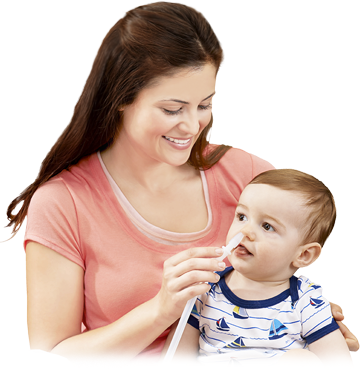Health Concerns
- Home
- Health Concerns
- Nasal Inflammation
Other Causes of Nasal Inflammation
Nasal obstructions can also cause nasal inflammation. These might include:
- Hematoma or a solid swelling of clotted blood with the nasal tissue,
- Deviated septum,
- A tumor,
- Choanal atresia,
- Cystic fibrosis.
How to treat Nasal Inflammation in Babies

2. Keep the air moist in your home, especially during the winter months. An overly dry environment can cause a baby’s nasal passages to become irritated. Bleeding can sometimes occur from an overly dry nose and babies with dry nasal passages are more susceptible to colds and viruses. Try a humidifier or cool-mist vaporizer to add moisture to the air in your baby’s room.
3. Saline drops can also provide relief from a dry nose and can help clear excess mucus. Here’s how to do it. Lay your baby on his or her back and put a rolled towel or blanket under the shoulders. Press the tip of the nose up and put two or three saline drops into each nostril. Wait about a minute and turn your baby onto his or her stomach to encourage drainage. Your baby may cough and sneeze to get the drops and/or mucus out. Saline drops are available at most drug stores.
If your baby’s nasal inflammation doesn’t improve after he or she recovers from a cold or following these home remedies, consult your pediatrician for further advice.
